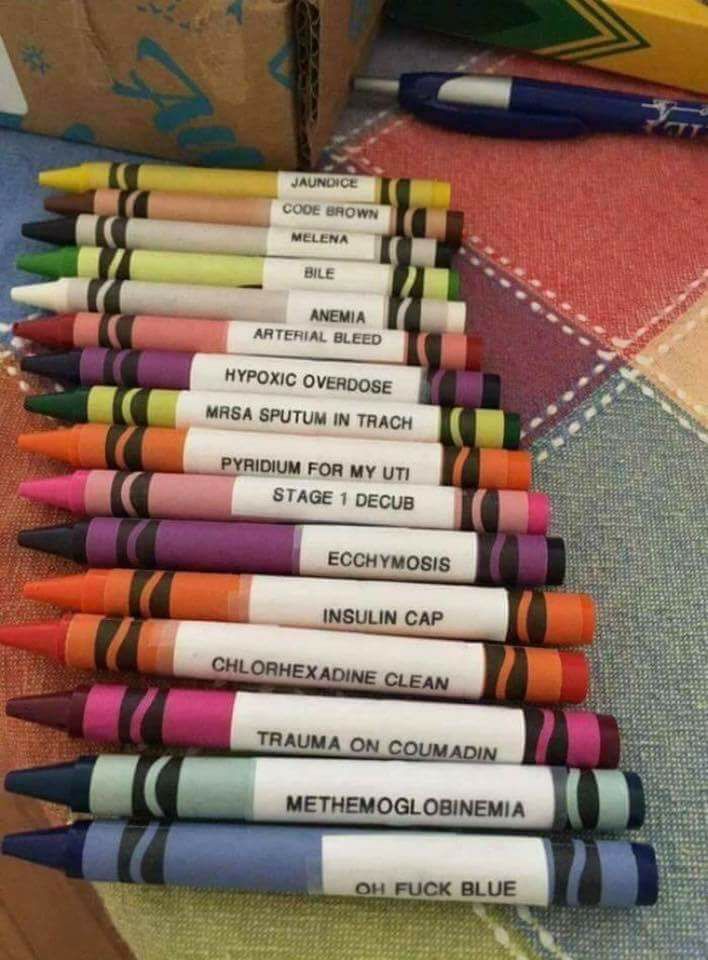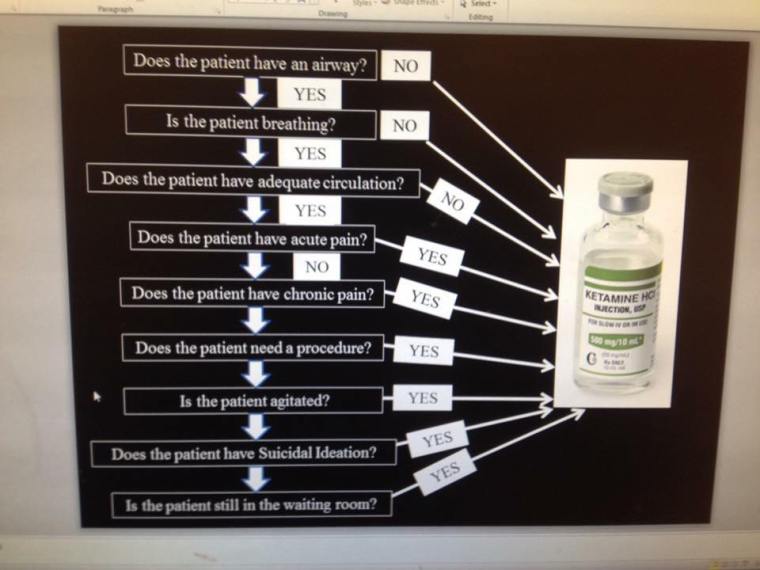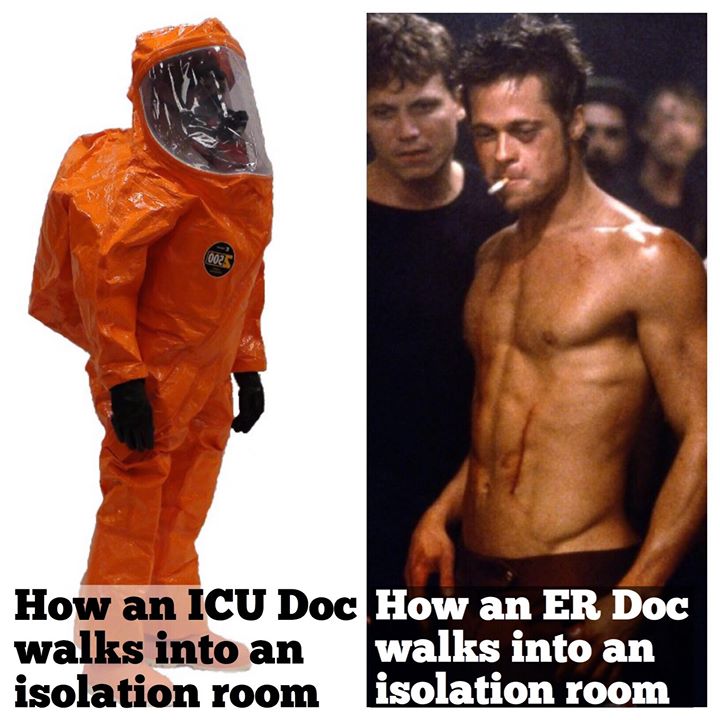Another beautiful piece by CSC…
Benign presentation. Bounce back. Bad outcome. Dirty, filthy, infectious words we hear as ED docs. Our ears perk. Eyes widen. Was it our patient? What happened? What did I do? What didn’t I do? Common reactions for sure. As a former ED attending at an academic center and now as a medical director of both an ED and EMS department, I’ve reviewed an infinite number of cases. We are humans caring for other humans with man made interventions. Infallible we are not. Counseling the providers involved with outcomes unbecoming can be delicate, contentious, painful, and full of angst. Sometimes it involves a cup of coffee, a long chat following an even longer shift, and a lot of listening. Most often the doc just needs to talk out loud, think into the audible universe, in order to achieve some semblance of understanding. Occasionally it turns into a confession or painful acknowledgment with hopes for medical atonement. Other times we simply realize we can’t change it all, and the final common pathway of all things cellular truly is apoptosis. What does one do, however, when it becomes your case, your bounce back, your bad outcome? The labyrinth of self-assessment becomes convoluted, confusing, and pointless, so its best to offer it up to someone “above” you. A peer. An objective colleague.
She presented as did everyone else this month. Coughing, runny nose, hoarse voice, slight wheeze. No fever, but hx. of COPD and of sleep apnea. The usual and the mundane. Nebs, steroids, IV fluids. Labs including CBC/CMP/Cardiac Enzymes/BNP/VBG all normal. Chest X-ray normal. Symptoms significantly improved. Reassessments proved assuring. Coordinated outpatient care and clinic follow up. Antibiotics and steroids along with the life-saving cough suppressant. On to the next 20 patients in the waiting room. Kind face. Loving husband of nine months. Plans for holiday shopping this weekend.
It’s always subtle at first; the way the unknown comes hurling towards your hospital from the ether. The ED is quiet, and the fluorescent lights are gentle and groggy. Half way through your shift you realize you haven’t eaten anything all day. Where did the time go? You’ll grab one more patient and make your way to the weekend cafeteria choices. The day unfolding as it often does. Yet, when I walked into the hallway yesterday, there it was. A cluster. An amalgam of stunned, muted paramedics, surprised nursing staff, and an apneic patient on a gurney. EMS hadn’t even had time to call in a report because she tanked so fast. No bells or whistles, no code button. Just this vacuous silence of “what the hell just happened?”. It was a 911 call for shortness of breath which unfolded into the arrest before us. We moved the patient I was going to see into another room, and continued our efforts with our newest casualty.
King airway in place with a belligerent IV. Readjust, reassess, continue compressions, bag the tube. Belly swells. The bed rattles from the cardiac massage. It was there before us in her eyes… the raw, unmitigated, ghastly mask of mortality. Exchange the tube with DL and ETT. Place a central line. ACLS medications flowed like water, and saline stretched the venous capacitance. Non-shockable rhythms left us with marginal options. More meds, more thoughts, more discussion, more compressions. Then the recognition. The same, kind face. The same eyes. Registration confirms I saw her 6 days ago. Mind races. What did I miss? Pull the chart, rapid review. Everything normal last time. What happened?
“Yes, please give another Epi.”
“Pulse check….nothing. Continue compressions.”
“Any family around? Please bring them in if possible.”
“Let’s give another bicarb and another Atropine.”
No clues from family discussion. Week was uneventful. More compressions, more tests, more meds, some silent prayers. Cardiac US shows nothing. Outlook is grim. Family at bedside. TOD called. Debrief. Exhale.
I walk into the hallway. It’s quiet again. The department exploded. My partner just picked up six patients. I look at my watch. Ninety minutes of feckless, heart wrenching effort. I visit with the family. Grand baby is due next week. There are Christmas presents with the patient’s name on them under the tree. Tears. Confusion. More prayers. Chaplain. Justice of the Peace.
The ride home was longer than most. I walked myself through what normally happens when I sit down with another physician to discuss their case. I ran through algorithms of risk and etiologies. Parked the jeep in the driveway at home. I marveled at the Christmas lights around the neighborhood. Didn’t want to walk inside. Didn’t want to pretend I had a good day. Didn’t want to break up fighting children or cook dinner. Just wanted to melt into the Christmas backdrop.
We know it happens, and when we consider what our occupation entails the statistics are there. We will have a bad outcome. A death will be felt last by our hands. It somehow feels doubly painful though when you see them within the last week. It’s almost as if you failed twice. Somehow the cosmos granted you a do-over, but the outcome remained the same. The mulligan was wasted. Emergency Medicine is one of the most difficult, emotionally volatile, and spiritually rewarding jobs on the face of the planet. I ask myself if I would have chosen the same path all over again, and honestly, despite my best efforts and current self-awareness, I would have done nothing different. Despite the misery, the loss, the days you wish never existed….I would still put on my stethoscope and drive to a hospital to take care of Society’s unwanted. Some of us can’t leave EM not for any reason other than it’s our most definitive sense of purpose.
Everyone at some point will have to review a case of theirs which usually involves a director, a chairman, or a room full of providers dissecting your practice style and your thinking process. Know this….there is not a single person in your journey of discovery that has escaped the minefield that is medicine. Don’t feel alone or isolated. Don’t think less of yourself. You’re in good company. More often than not, the person discussing your case with you, experienced something eerily similar, and hopefully can provide some insight, some hope, and some emotional salve. The fact is, for those of us who are responsible for medical oversight and quality we often have to look no further than the mirror for reference. -csc


